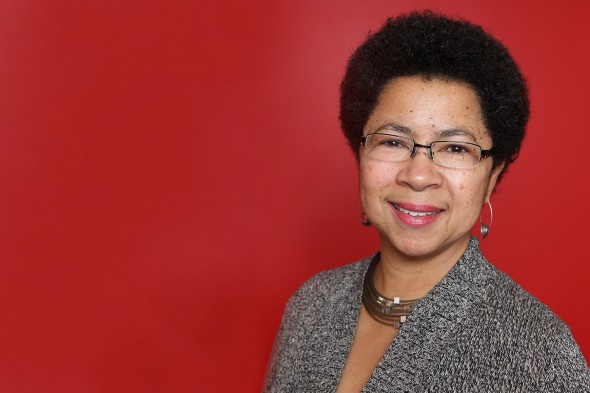Historian to lead women’s studies association

Barbara Ransby was elected president of the National Women’s Studies Association. Photo: Jenny Fontaine
Distinguished professor Barbara Ransby has been elected president of the National Women’s Studies Association.
Ransby, who has faculty appointments in African American studies, gender and women’s studies, and history, begins her two-year term at the completion of the group’s annual conference this month in Montréal, Québec.
“I am thrilled to assume the presidency of NWSA at this critical time when feminist scholars and activists are doing such amazing work in the U.S. and trans-nationally,” she said. “We look to deepen the tradition of engaged scholarship so central to our mission as an organization, and to build bridges to intellectual communities beyond the academy.”
Ransby, a historian, writer, and longtime political activist, also serves as director of the Social Justice Initiative at UIC, a campuswide program that aims to build on socially conscious research and interests across different disciplines, improve connections with community partners, and serve students interested in social justice work.
Ransby has published widely in scholarly and popular publications and is a frequent guest lecturer internationally. She is the author of an award-winning biography of civil rights activist Ella Baker, titled Ella Baker and the Black Freedom Movement: A Radical Democratic Vision. Her most recent book is Eslanda: The Large and Unconventional Life of Mrs. Paul Robeson.
She serves on the editorial board of several academic journals and is editor-in-chief of SOULS, a critical journal of black politics, culture and society.
Ransby, who has been at UIC since 1996, earned a bachelor’s degree in history from Columbia University and master’s and doctoral degrees in history from the University of Michigan, where she was a Mellon Fellow.
Established in 1977, the National Women’s Studies Association has as one of its primary objectives to promote and support the production and dissemination of knowledge about women and gender through teaching, learning, research and service in academic and other settings. The association has more than 2,000 individual and 350 institutional members working in varied specialties worldwide.
